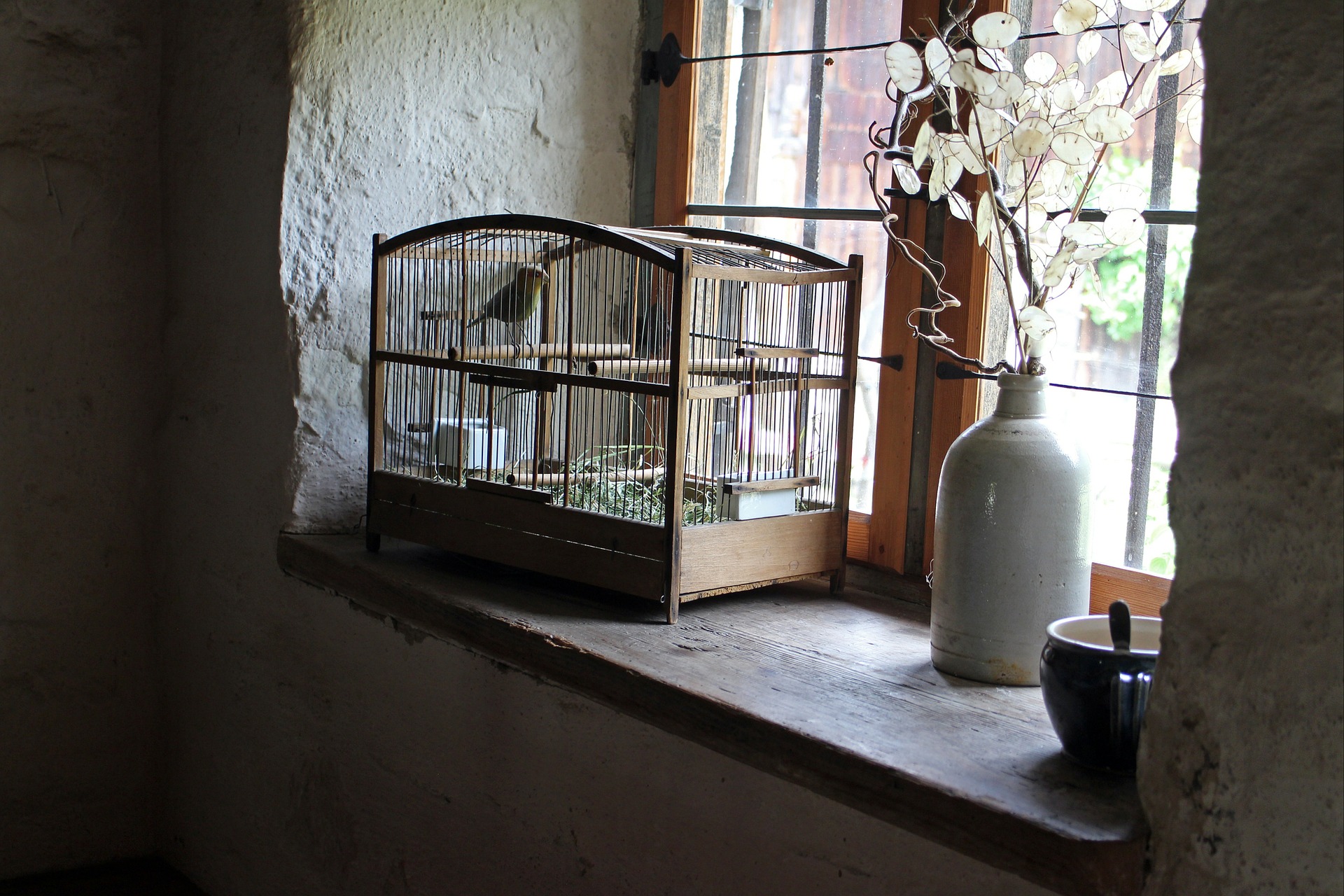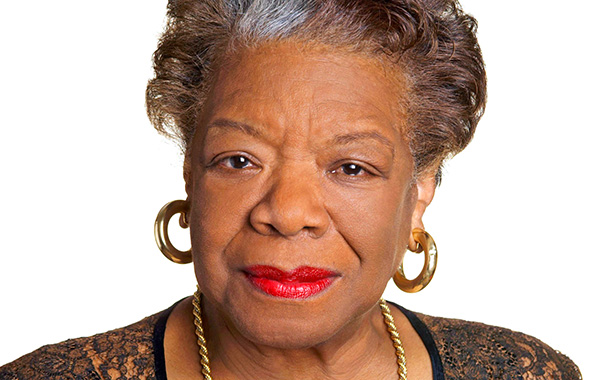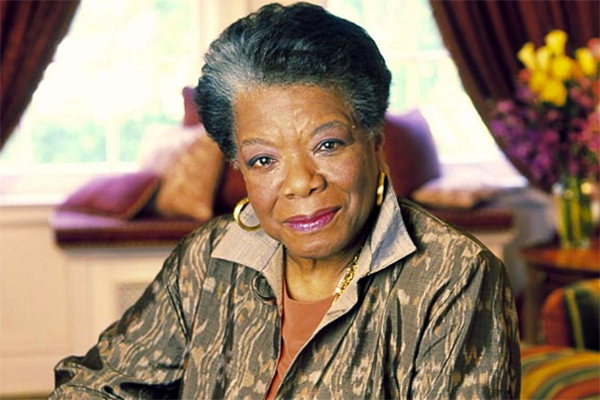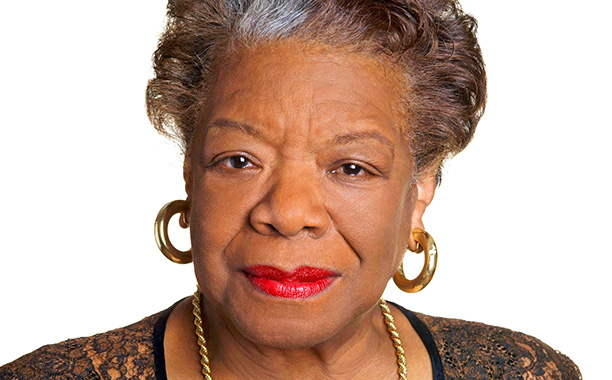Old Folks Laugh Explanation:
The first stanza of the poem, in tandem with the title, establishes the idea that old folks really know how to laugh. The poet suggests that having reached old age, people are not pressured by the need or feel the desire to pretend. Hence, they no longer “hold their lips this or that way” or simpler; they just laugh. Their laughter rises unperturbed, right from their bellies, and like the sounds of the tambourine, it augments with force. As such, upon entering old age, inhibitions are reduced; and moreover, fewer societal restrictions pertaining to conduct are imposed upon the old, which is probably what allows the old folks the freedom to laugh as they please. However, Angelou’s poem presents another reason/angle to why the old folks laugh.
The old folks’ laughter is genuine as well as uncontrolled – so much so that it rushes forth and spills like an overflowing liquid. The poet further suggests that the laughter of the old folks is liberating. It is liberating not only for the old folks but also for others, as it teaches them to be genuine rather than pretentious. It teaches others to laugh without worrying about what the ones around would think, which is why the poet says, “When old folks laugh, they free the world.” In other words, this hyperbolic line helps one understand that the laughter of the old folks is powerful enough to free the world. This could also suggest that their laughter is infectious.
The next stanza talks about how with age, the infirmities of the body become apparent while laughing; for instance, the saliva at the corner of the mouth and the wobbly head on the “brittle neck.” However, the aged mind remembers to laugh because experience has shown them the power of laughter. Moreover, their physical infirmities are balanced by the memories/experiences they have gained. Memories that they hold close like one would hold a grandchild in one’s lap.
The final stanza of the poem offers an explanation as to why old people laugh. The poem suggests that they laugh because laughing makes the difficult things in life bearable, such as the idea of death and the unnerving proximity to the same. Man’s life is a fight to escape the clenches of death. In order to survive, life itself becomes a struggle. In this struggle, a man neither gets to enjoy all that life has to offer nor accept the pain of the inevitable death. However, according to the poet, laughter is what enables the old folks to accept death, which she refers to as “dear painless death,” as well as to forgive life for the hardships it has caused.
Old Folks Laugh Themes
Laughter, a form of freedom – The poet describes the laughter of the old folks as a form of freedom. It is freedom from the restrictions imposed by society on what is acceptable and what is not. This is why the poem begins with the observation that the old folks are no longer content with just simpering. Simpering refers to a silly smile, and the old folks no longer wish to put on a silly smile just because it is considered acceptable social behavior; rather, they laugh an infectious boisterous laughter. Their laughter is also a way to exercise the freedom of their body, not to mention freedom of expression, for they laugh without caring about their appearances. Thus, their bellies jiggle, and the sound of their “holler” rises while their heads wobble on their neck. It is also freedom from the eventuality of the pain of death. One always imagines death as being painful, but the struggles endured through life have taught the old folks to accept death too as a part of life. They see it as one more hurdle that they must cross, which enables them to accept death with the same laughter with which they fought many a life’s battles.
Memories- Memories are an important theme in Maya Angelou’s work, and this poem talks about how for old folks, memory is a source of laughter. The poet writes:
“They turn slowly, slyly knowing
the best and the worst
of remembering.”
Being experienced in the ways of the world, they have learned to laugh at the good as well as the bad experiences/memories. Or, the poet could also be suggesting that by looking back at one’s life, one realizes that neither the good nor the bad lasts forever. Hence, the wise thing to do is to not be overwhelmed by either pain or happiness; so that one day, when you look back, you can laugh at your experiences, both good as well as painful ones.
Old Folks Laugh Critical Analysis –
Through this poem, Angelou seems to suggest that the laughter of the old folks is indicative of their wisdom. Or rather, it is the physical manifestation of their wisdom.
It is also interesting to note that the title of the poem is “Old Folks Laugh,” not “Old Folks’ Laughter” or “How the Old Laugh,” even though the poem comments upon how the old laugh and the various implications of their laughter. This is probably to suggest that the laughter of the old folks is a genuine one and that wisdom has taught them that laughter is the best medicine to get by life’s struggles.
Old Folks Laugh Literary Devices – The poem uses quite a few figures of speech. For instance, Angelou employs a metaphor to talk about the nature of the old folks’ laughter. The line, “the hollers rise up and spill over,” compares the said laughter to an uncontrollable fountain by drawing upon the movement of rising and spilling akin to both.
The line, “When old folks laugh, they free the world,” is an example of hyperbole, whereby the liberation experienced by the old folks is shown to have the power to liberate the whole world.
Finally, the last stanza of the poem presents a paradox in the phrase, “dear painless death,” for death, whether painful or painless, can never really be dear to man. However, the paradox has been employed here to emphasize the idea that with age, death seems less scary, and one begins to see it as a friend who would offer an escape from the squalor of human lives.
Old Folks Laugh Summary:
May Angelou’s “Old Folks Laugh” describes how old folks laugh. Apart from describing the physical expressions on the old folks’ faces as they laugh, the poet also explains the implications of the said laughter. The poem has been penned in free verse, and the structure of the poem has been paralleled by the rise and fall of a hearty laugh.
You can also check out the summary of Crossing the Bar here.
Some online learning platforms provide certifications, while others are designed to simply grow your skills in your personal and professional life. Including Masterclass and Coursera, here are our recommendations for the best online learning platforms you can sign up for today.
The 7 Best Online Learning Platforms of 2022
- Best Overall: Coursera
- Best for Niche Topics: Udemy
- Best for Creative Fields: Skillshare
- Best for Celebrity Lessons: MasterClass
- Best for STEM: EdX
- Best for Career Building: Udacity
- Best for Data Learning: Pluralsight











it helped me for easy exams